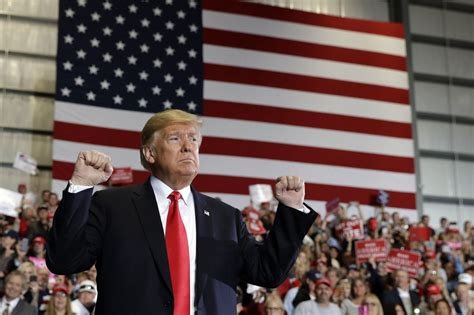
Trumpism: Unveiling a Political Revolution
In the realm of American politics, few terms have ignited such passionate debates and left an indelible mark as Trumpism. This political phenomenon, born during Donald Trump’s presidency, has not only reshaped the political landscape but continues to be a defining force in American politics. In this comprehensive exploration, we will delve deeper into the origins, ideology, and enduring influence of Trumpism while keeping a keen eye on the concerns and interests of independent voters across the United States.
The Emergence of Trumpism: A Paradigm Shift
The emergence of Trumpism can be traced back to the 2016 U.S. Presidential Election, a pivotal moment in American history. It was a time when the nation’s political landscape was ripe for a transformation. A growing sentiment against the political elite had taken root, and people yearned for a leader who could genuinely represent the “average Joe.” This longing for change found its voice in Donald Trump’s outsider status and unconventional campaign style.
The independent voters, a diverse and influential demographic in American politics, played a significant role in the rise of Trumpism. They were drawn to Trump’s ability to channel public discontent toward established institutions and the political elite. His willingness to challenge the status quo resonated with many independent voters who felt marginalized by traditional party politics.
Understanding the Ideological Foundations
One of the defining characteristics of Trumpism is its fluidity when it comes to political ideology. Unlike conservatism or liberalism, Trumpism does not adhere to a well-defined political doctrine. Instead, it is characterized by the personal inclinations of Donald Trump himself, often defying traditional party lines.
Populism: At its core, Trumpism is inherently populist. It emerged as a revolt against established institutions and political elites, tapping into the frustrations of those who felt neglected in American society. Trump’s rhetoric often frames issues as ‘us versus them,’ creating an emotionally charged atmosphere that fuels the populist narrative.
Nationalism: Nationalism is another cornerstone of Trumpism. Through slogans like “Make America Great Again,” this movement emphasizes a strong national identity, prioritizing domestic issues over global ones. This nationalistic stance is evident in strict immigration policies, protectionist trade agendas, and withdrawal from international agreements perceived as detrimental to U.S. interests.
Distrust of Elites: A fundamental element of Trumpism is its deep-seated distrust of elites and traditional institutions, including the media, academia, and the government itself. This skepticism forms the basis for many of Trump’s claims, such as his assertion that the media is the “enemy of the people,” reinforcing his image as an outsider challenging the status quo.
Charismatic Leadership: The Trump Factor
At the core of Trumpism lies Donald Trump himself. His charismatic personality, entrepreneurial background, and celebrity status gave him a unique appeal, enabling him to capture substantial public attention. His willingness to court controversy, employ unfiltered rhetoric, and adopt a confrontational style solidified his image as a political outsider, amplifying the influence of this movement.
Trumpism’s Impact on American Politics
The impact of Trumpism on American politics has been profound and visible in both domestic and foreign policy arenas.
Domestic Policies: On the home front, this phenomenon has led to significant shifts in policy direction. There has been increased focus on American industries, exemplified by tax cuts for corporations and deregulation efforts. Immigration underwent a significant overhaul, with the introduction of policies aimed at curbing illegal immigration, including the controversial ‘zero-tolerance’ policy and efforts to build a border wall.
Foreign Policies: Internationally, Trumpism ushered in an era of America First policies. This shift strained alliances, with Trump questioning the value of NATO, exiting international agreements like the Paris Climate Accord, and launching a trade war with China.
Trumpism Beyond Trump: A Continuing Influence
Although Donald Trump may no longer hold office, the influence of Trumpism persists. A significant faction within the American electorate still aligns with Trumpist ideals and is likely to continue shaping American politics by influencing future candidates and policy platforms. Conversely, this movement has also spawned a vocal opposition that views it as a threat to American democratic values. The ongoing clash between these factions will continue to define the political landscape in the coming years.
A New Political Phenomenon Dissected
Trumpism is more than just a political movement associated with one man; it is a testament to the potential for seismic shifts in political landscapes, reflecting deeper societal divides and the evolving nature of democratic discourse. While the future of this phenomenon remains uncertain, its undeniable impact ensures that it will shape American politics for years to come.
Meta Description: Explore the impact and evolution of Trumpism in American politics. Uncover the origins, ideology, and lasting influence of this transformative phenomenon on independent voters. Discover how it shaped domestic and foreign policies, leaving an indelible mark on the political landscape.
